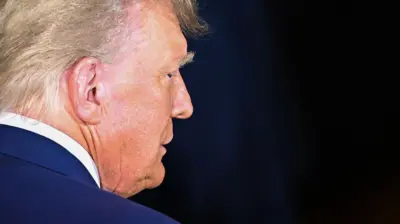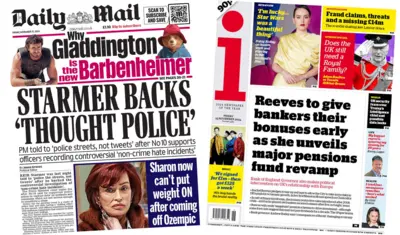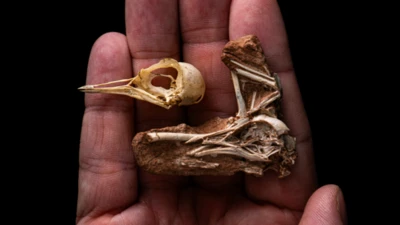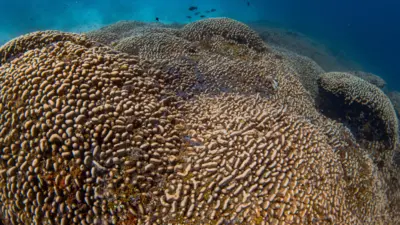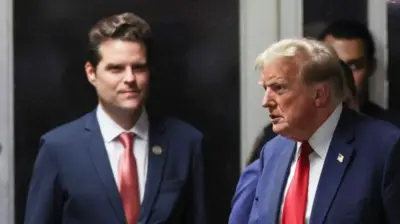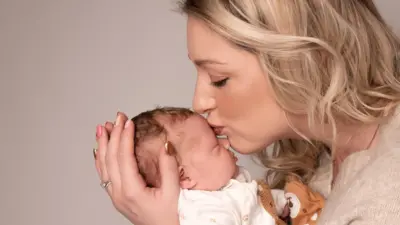We've updated our Privacy and Cookies Policy
We've made some important changes to our Privacy and Cookies Policy and we want you to know what this means for you and your data.
Huawei: UK 'not strong-armed' by US into 5G ban, says Raab
Image source, AFP
Dominic Raab has insisted the UK was not "strong-armed" by the US into excluding Huawei from its 5G network.
While US sanctions against the Chinese firm had affected the UK's decision, the foreign secretary said the allies' interests "overlapped" on the issue.
He said diversifying the UK's telecoms supply chain was a priority to fill the gap once Huawei's role ended in 2027.
US counterpart Mike Pompeo said the UK had made the right "sovereign" call and Chinese "bullying" must be resisted.
Speaking at a news conference in London during a two-day visit to the UK, he praised the UK's recent actions on Hong Kong and suggested it and other allies must stand up to China's threatening behaviour "in every dimension".
The US had lobbied the UK to reverse its decision earlier this year to give Huawei a lead role in building the infrastructure for the next-generation mobile communications network.
Last week, the government announced that it would ban domestic mobile providers from buying new Huawei 5G equipment after the end of this year and force them to remove all of its 5G kit from their networks by 2027.
Last week, Mr Pompeo signalled that he hoped the UK would act more swiftly but, speaking in London, he thanked the government for its decision and its actions more broadly against China, saying "well done".
'Good decision'
Mr Raab was asked by journalists whether the UK had effectively been forced into the u-turn by Washington's decision to sanction both US and foreign firm supplying technology to the Chinese company.
"As a result of US sanctions we have to look with a clear-sighted perspective...and we have taken a decision based on that," he replied. "But I don't think there is any question of strong-arming.
"Mike and I always have constructive discussions and, in the vast majority of cases, our views overlap."
Mr Pompeo acknowledged the two countries had not always agreed over the issue but that the UK had ultimately acted in its own national interests.
"I think the UK made a good decision," he said.
"But I think that decision was made not because the US said it was a good decision but because the leadership in the UK concluded the right thing to do was to make that decision for the people of the UK."
Asked whether the US wanted to "crush" the Chinese firm, which Washington has accused of state-sponsored espionage, Mr Pompeo said the US would vigorously defend its national security and stop its citizens' personal data from ending up "in the hands of the Chinese Communist Party".
Dunn talks
Earlier, Mr Pompeo met Boris Johnson in Downing Street for "candid" talks on a range of security and economic issues, including current US-UK trade negotiations.
No 10 said Boris Johnson had also raised the death of Harry Dunn and the need for "justice" for his family.
Image source, Reuters
The UK continues to seek the extradition of Anne Sacoolas in connection with the 19 year-old's death in a road traffic collision outside a US military base in Northamptonshire last year.
The US has said it cannot allow Ms Sacoolas, who has been accused of causing Harry Dunn's death by dangerous driving, to return to the UK to be questioned, insisting she has diplomatic immunity.
In a statement, Downing Street said the PM had made Mr Pompeo aware of the "strong feeling among the people of the UK that justice must be delivered".
"The prime minister reiterated the need for justice to be done for Harry Dunn and his family," it said.
Downing Street said the two men also spoke about "shared global security and foreign policy issues, including China's actions in Hong Kong and Xinjiang, the situation in Iran and the Middle East peace process".
The two-day visit is likely to be Mr Pompeo's last to the UK before November's presidential election.
Top Stories
More to explore
Most read
Content is not available
